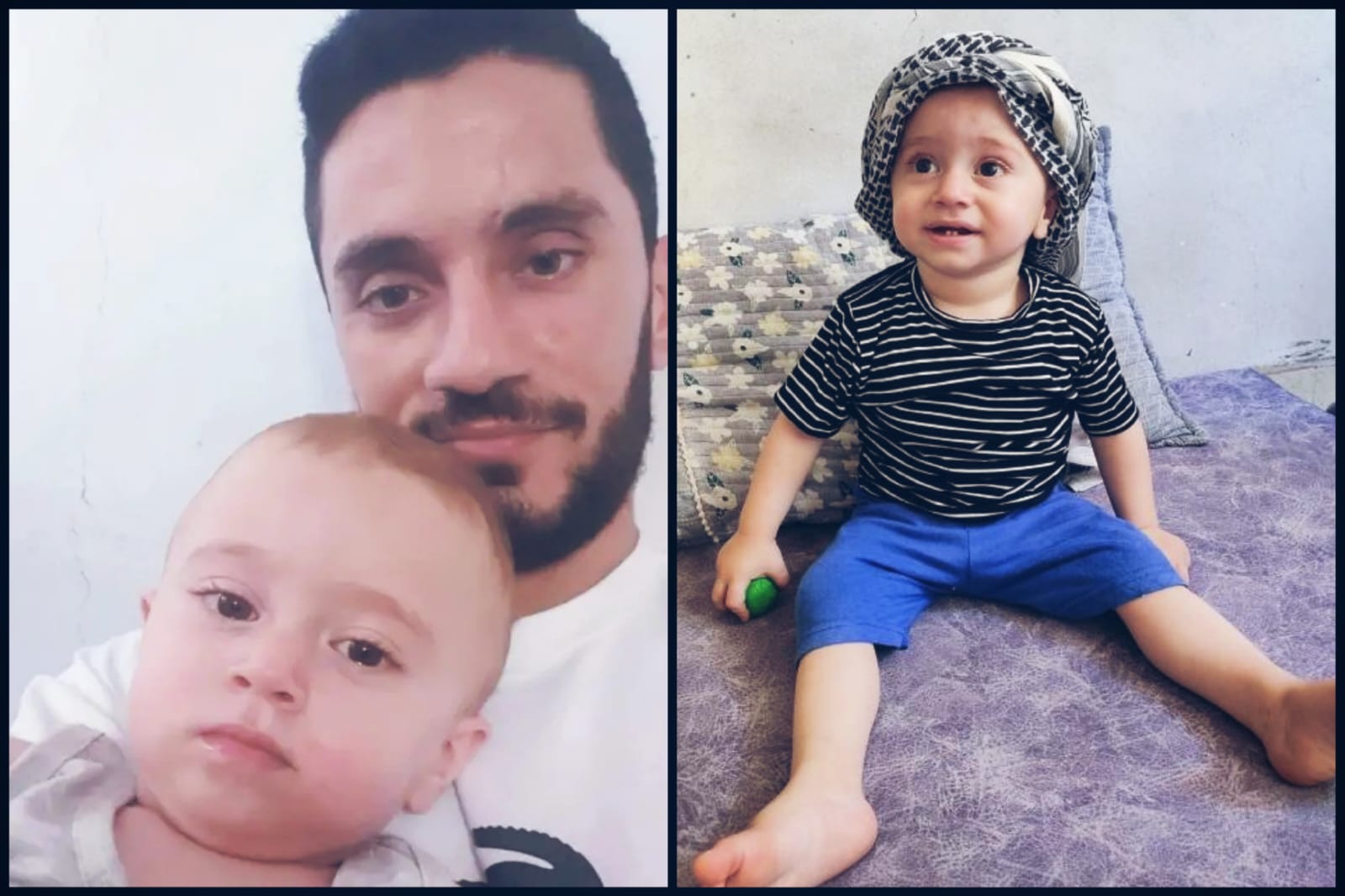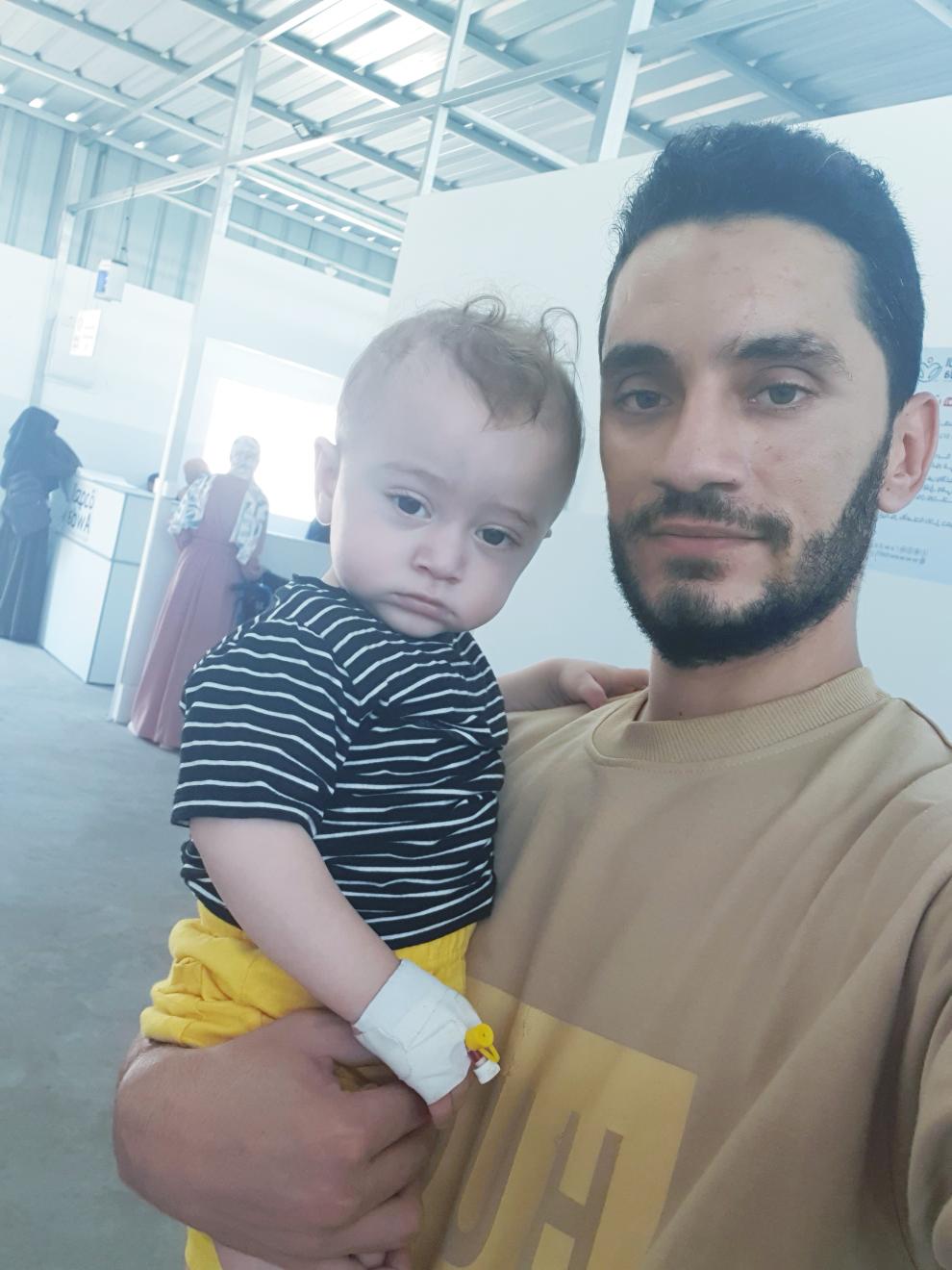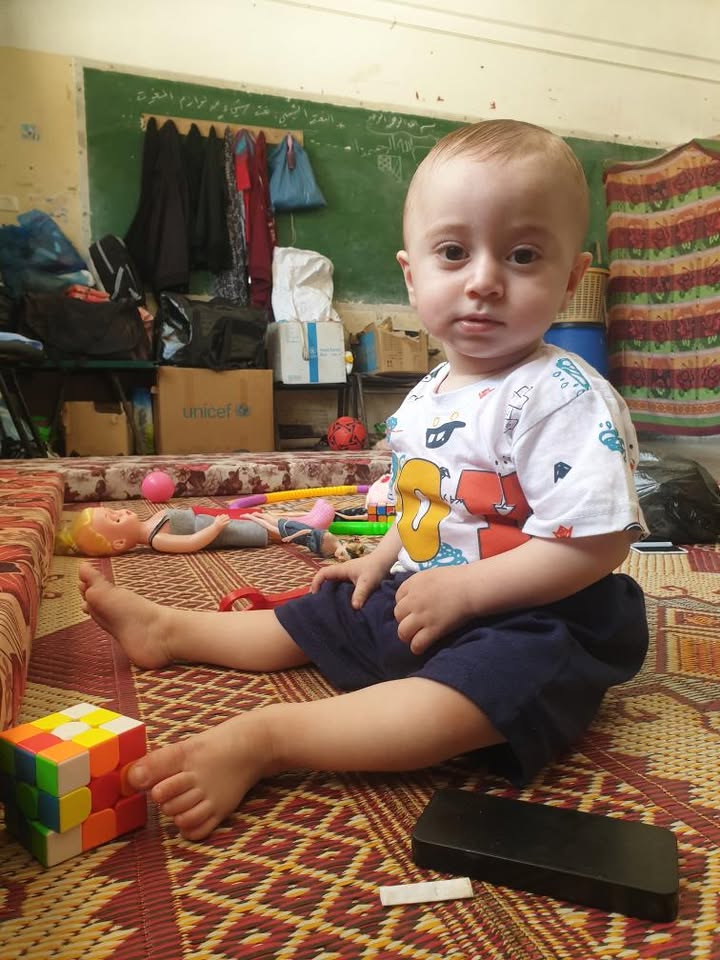One Year On: Life With Gaza’s ‘Miracle Baby’
International headlines briefly celebrated the baby’s survival, but then the cameras moved on. “For the world, it was one story,” his father says, “For me, it is every day of my life”

A year after the world called his son a “miracle baby,” Anas still wakes up each day to the same harsh reality: survival in Rafah is a battle that never ends.
With food scarce, clean water uncertain, and the sound of drones a constant backdrop, the young father says the miracle wasn’t just that his son Malek Yassin was born alive amid the bombings — it is that he is still here.
“We live from one day to the next,” Anas told AMT in an exclusive interview. “My only goal is to keep him safe, but sometimes even that feels impossible.”
“I lost my wife and gained my son in the same breath”
When his wife Ola Al-Kurd went into labor after being injured amid Israeli airstrikes last year, Anas feared the worst. Doctors rushed her into an emergency procedure, but she did not survive.
His son did, though, for hours, the child’s survival was uncertain. News outlets called him a “miracle baby,” a symbol of life in the middle of death.
But for Anas, miracles did not soften the grief. “I lost my partner and gained my son in the same moment,” he said. “It is a pain and a blessing I carry together.”
Since then, raising an infant alone in Gaza has been a test of endurance.
The formula is rare, and when available, it is expensive beyond his means. Electricity cuts make sterilizing bottles difficult, and storing milk is almost impossible. Even finding diapers is a daily task.
“Every little thing is a struggle here,” Anas said. “People outside think of big things like bombs and rubble, but it’s the small daily needs that break you.”
He has often had to improvise — boiling water three or four times to ensure it is safe, or using cloth when diapers run out. At times, neighbors share supplies, but he admits the aid is never enough. “We all help each other because no one has much,” he said. “It’s survival, not living.”
Embracing Fatherhood

Despite the hardship, Anas has learned to embrace fatherhood in ways he never expected.
His son, now a year old and stumbling on unsteady legs, is growing into a curious toddler. He laughs when Anas makes faces, claps when he hears music, and cries whenever the sounds of bombing shake the night.
“He already knows what fear is, and that breaks my heart,” Anas said. “No child should learn the sound of war before the sound of peace.”
The boy’s presence has also forced Anas to find strength in moments of despair. He often admits to sleepless nights, haunted by his wife’s absence and the fear of failing his child.
“There are days I feel broken,” he said. “But then he looks at me, and I know I cannot give up. He deserves more than just survival — he deserves a future.”
The Weight of Misunderstanding

Living in Gaza, Anas says, also comes with a burden few outsiders understand.
International headlines briefly celebrated the baby’s survival, but then the cameras moved on. “For the world, it was one story,” he said. “For me, it is every day of my life.”
He struggles with the imbalance between attention and reality. The baby may have been a symbol of resilience, but symbols cannot feed a child or keep him safe. “People called him a miracle, but they don’t see the hunger, the fear, the loneliness that came after,” Anas said.
Yet even in that, he has found perspective.
He says the label “miracle” reminds him that his son is more than just another casualty statistic. “When I feel weak, I remember — he was saved for a reason,” Anas said. “Maybe his life will one day bring light in all this darkness.”
Life Without Leadership
When asked about the political situation in Gaza, Anas’s answer was direct. He does not see Hamas, or any other group, leading or supporting people through their daily suffering.
“There is no government here, not Hamas or anyone else,” he said. “The people have lost control, and no one is helping. What we need is an international solution, because ordinary families like mine are the ones paying the price.”
For him, politics is distant compared to the urgent needs of raising his son. “I don’t understand politics much,” he said, “but I know that my child deserves milk, medicine, and safety. That’s all that matters to me.”
Holding On to Hope
Anas dreams of leaving Gaza, but he admits he has no clear path out. Borders remain tightly controlled, and opportunities for escape are scarce. Still, he imagines what life could be like elsewhere.
“I dream of him going to school, running in a park, having friends, and growing without fear,” Anas said. “I want to hear him laugh freely, not cry every time an explosion shakes the house.”
Until then, he keeps going one day at a time.
He works odd jobs when possible, relying on aid when it arrives, and leans on his faith to stay steady. “I don’t know what tomorrow will bring,” he said. “But I have to believe there is a better life waiting for him. Otherwise, all this suffering would have no meaning.”
Looking at the efforts of the Global Sumud Flotilla, a coordinated fleet of mostly small vessels sailing from ports across the Mediterranean to break Israel’s illegal siege, Anas hopes it will successfully stop the genocide and look into people’s need for healthy food and drink, urgent medicine, and to rebuild and rehabilitate what was destroyed during the previous two years of war.
You can help change Malek and his father’s lives by supporting their fight for safety and dignity. Donate here.
